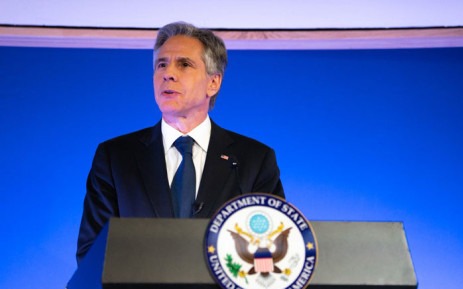In a significant diplomatic move, the United States, through Secretary of State Antony Blinken, has unveiled plans to impose visa restrictions on Ugandan officials involved in enforcing a contentious anti-gay law that includes potential death penalties for certain cases. This decision comes amidst international criticism, with U.S. President Joe Biden, the European Union (EU), and UN Secretary-General Antonio Guterres condemning Uganda for instituting one of the world’s harshest anti-homosexuality laws in May. In this article, we delve into the details of the U.S. visa restrictions, the global response, and the broader implications for human rights and international relations.
- Background on Uganda’s Anti-Gay Law: Uganda sparked global outrage by implementing a severe anti-gay law in May, prescribing the death penalty for cases of “aggravated homosexuality” under specific circumstances. Although Uganda has not executed capital punishment for many years, the law has drawn vehement criticism from various quarters, including the United States. President Yoweri Museveni, who has been in power since 1986, has remained defiant, emphasizing domestic support for the law despite international pressure.
- U.S. Visa Restrictions and Targeted Individuals: Secretary Antony Blinken announced that the United States would deny visas to both current and former Ugandan officials, as well as their family members, if they are found to be involved in “repressing members of marginalized or vulnerable populations.” These populations encompass a broad spectrum, including environmental activists, human rights defenders, journalists, LGBTQI+ individuals, and civil society organizers. While the specific individuals affected were not named publicly, this visa restriction policy represents a robust response to Uganda’s controversial legislation.
- International Criticism and Previous Actions: The U.S. visa restrictions follow strong condemnations from President Biden, the EU, and UN Secretary-General Guterres. Notably, this is not the first time Uganda has faced consequences for anti-LGBTQ+ measures. A decade ago, the country overturned a law that imposed life imprisonment for homosexual relations after international donors, including the United States, reduced aid. The current move signifies a continued stance against human rights violations and a commitment to promoting inclusivity and tolerance.
- Broader Implications for U.S.-Uganda Relations: Secretary Blinken’s statement underscores the importance of upholding democracy and respecting human rights for sustaining the decades-long partnership between the United States and Uganda. This signals a clear stance that the U.S. values align with those promoting equality, freedom, and protection of vulnerable populations. While the U.S. has expressed its willingness to collaborate with nations worldwide, it is evident that fundamental human rights violations will not be tolerated.
- Expansion of Restrictions and Zimbabwe’s Election: The new visa policy represents an expansion of measures imposed on Uganda over alleged irregularities in the 2021 election, where President Museveni secured another term. The U.S. had previously implemented restrictions on individuals linked to these election irregularities. Furthermore, Secretary Blinken announced that the U.S. would also deny visas to individuals who undermined Zimbabwe’s election in August. This move targets those involved in actions that led to President Emmerson Mnangagwa’s victory, with international observers noting the election fell short of democratic standards.
As the United States takes a firm stance against Uganda’s anti-gay law, the implementation of visa restrictions on officials involved in its enforcement sends a strong message about the global community’s commitment to human rights. The broader implications extend to U.S. foreign policy, emphasizing the significance of democratic values and respect for vulnerable populations. While President Museveni remains resistant to international pressure, the consequences of these visa restrictions could shape the future discourse on LGBTQ+ rights and human rights violations on the international stage. The U.S. move not only holds Uganda accountable but also underscores the commitment to fostering democratic ideals and protecting the rights of marginalized communities globally.









